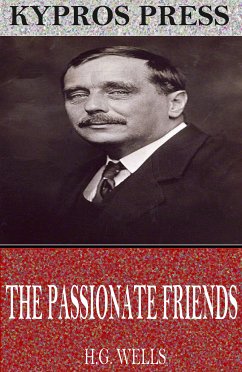
The Passionate Friends (eBook, ePUB)
Exploring Love, Friendship, and Society in Edwardian England
Versandkostenfrei!
Sofort per Download lieferbar
0,49 €
inkl. MwSt.
Weitere Ausgaben:

PAYBACK Punkte
0 °P sammeln!
H. G. Wells's "The Passionate Friends" is a poignant exploration of love, choices, and the complexities of human relationships, rendered with his characteristic blend of wit and introspection. Set at the turn of the 20th century, the narrative delves into the lives of three intertwined characters: a woman caught between her emotional desires and societal expectations, and the two men who represent different pathways in her life. With a rich, lyrical prose style, Wells captures the era's shifting attitudes towards romance and individuality, effectively situating the novel within the broader con...
H. G. Wells's "The Passionate Friends" is a poignant exploration of love, choices, and the complexities of human relationships, rendered with his characteristic blend of wit and introspection. Set at the turn of the 20th century, the narrative delves into the lives of three intertwined characters: a woman caught between her emotional desires and societal expectations, and the two men who represent different pathways in her life. With a rich, lyrical prose style, Wells captures the era's shifting attitudes towards romance and individuality, effectively situating the novel within the broader context of contemporary literary advancements in psychological realism. Wells, a prominent figure in the literary landscape, is known for his forward-thinking ideas and social critique, informed by his background in science and sociology. His own experiences with love and the constraints of society likely influenced the themes presented in "The Passionate Friends." This novel reflects his personal beliefs about the transformative power of relationships and the often painful choices they entail, showcasing his intellectual engagement with the shifting paradigms of his time. Readers seeking a profound meditation on love's joys and sorrows will find "The Passionate Friends" to be a compelling and insightful read. It invites reflection on the nature of desire and commitment, making it relevant for those interested in the intricacies of human emotion and social interplay.
Dieser Download kann aus rechtlichen Gründen nur mit Rechnungsadresse in A, B, BG, CY, CZ, D, DK, EW, FIN, F, GR, H, IRL, I, LT, L, LR, M, NL, PL, P, R, S, SLO, SK ausgeliefert werden.













